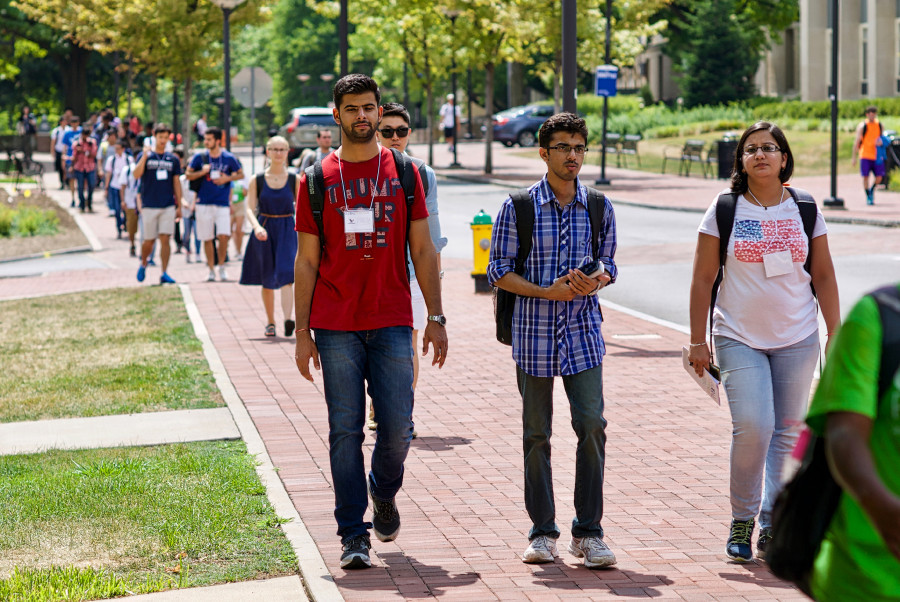National
As pandemic stops Nepali students from going abroad, consultancies and other businesses take a hit
Plans of thousands of students to study abroad have been either postponed or shattered due to Covid-19 related travel restrictions, and suspension of visa services.
Aditi Aryal & Elisha Shrestha
When Mahesh Shrestha received an admission offer from Drexel Universityin mid-March for the fall session, he hoped that by July, he would be ready to leave for the US on a student visa. But, with the Covid-19 outbreak, things have not gone as planned.
“The university postponed the start of the session until September, and launched a few online courses in July. Right now, I am enrolled in one such course,” said Shrestha. However, I don’t know how I can pay for the college fees if I stay in Nepal,” said Shrestha.
Like Shrestha, thousands of students preparing to go abroad to study have been either forced to postpone their plans or completely abandon them due to Covid-19 travel restrictions.
But it’s not only the students who are affected. Other businesses such as airline companies, and educational consultancies that depended on the mobility of the students have also seen their revenues decline.
Before the lockdown, Nepal students used to spend billions on airfares every year, say airline operators. “During the 2018/19 fiscal, Nepalis spent almost Rs 41 billion on air travel. But due to the pandemic, the figure dropped to Rs 25.2 billion in 2019/20,” Gunakar Bhatta, spokesperson of the Nepal Rastra Bank, told the Post. “Students who leave around this time of the year (June/July) used to make up a significant proportion of travellers.”
Education consultancies are also facing the brunt due to a halt in student departures. Santosh Pyakurel, chair of the National Education Consultancies’ Association, said such businesses have registered heavy losses and many are on the verge of shutting down.
Pyakurel said that around 4,000 education consultancies that guide students to get admission in foreign universities were in operation in Nepal before the lockdown. Although official figures from the Ministry of Education, Science and Technology show that 1,473 consultancies and language institutes operate legally in the country.
“Before the lockdown, the consultancies and language institutes contributed billions of rupees to the country’s economy. However, due to lack of business following the lockdown, around 20 percent of consultancies have shut down completely,” said Pyakurel. The possibility of them getting back to business soon is bleak, he said.
Many students also prefer to study abroad because they can take up part-time jobs to earn their living, pay their fees, and also send some money home to their families in Nepal.
In July, a student in the United States had told the Post on the condition of anonymity that he was working part-time illegally to support his education and also sent around $3,000 (Rs 357,000) home. The pandemic cost him his job, and dashed hopes of sending money home. Similar to him, youths studying in other countries also send money to their families.
According to Asmod Karki, an economist, in 2016 alone, remittances received from the United States, one of the most-preferred destinations for Nepali students, amounted to Rs 110.03 billion. “A huge chunk of this is sent by students,” he added.
Once the pandemic is over and travel restrictions are lifted, the students are expected to join their universities abroad. “The setback we are seeing could be temporary. Once they rejoin the job market, after graduation or during their study period, they will start sending money again,” he said.
As for Mahesh Shrestha, he hopes international flights, along with visa services for the US, resume soon so that he can make it to his new college by fall. “I worked really hard to get a placement in this master’s programme. I will be really disappointed if my admission gets cancelled due to the circumstances created by Covid-19,” said Shrestha.




 16.16°C Kathmandu
16.16°C Kathmandu
 (1).jpg)













